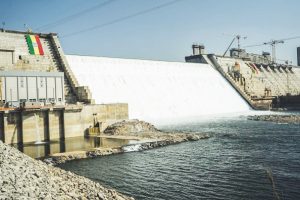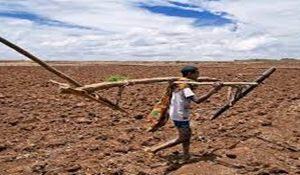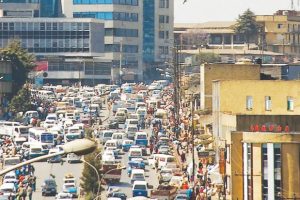
One of the richest regions in terms of biodiversity is Africa, which is home to an amazing range of ecosystems, species, and genetic resources. This biodiversity presents many chances to lessen the effects of climate change and is essential to the continent’s ability to withstand its effects.
Africa’s biodiversity can be used to illustrate both its biodiversity and its relevance to climate change. Savannas, forests, marshes, deserts, and coastal habitats are among the diverse ecosystems found in Africa. Different species and ecological processes are supported by each of these environments.
In addition, the continent is home to many endemic species, including iconic fauna like elephants, lions, and rhinoceroses, as well as a diverse range of plant species. This rich variety is critical for preserving ecological balance. Furthermore, many African people rely on biodiversity to support their livelihoods, cultures, and customs. Indigenous knowledge systems frequently emphasize the responsible use of local resources.
Despite the continent’s biodiversity potential, Africa faces serious challenges from climate change, which affects its ecosystems, economies, and communities. It raises temperatures and causes heat stress, which threatens animals and people’s lives, food security, productivity, and human health. The inability of numerous species to adjust to rising temperatures could result in changes to ecosystem services and biodiversity.
Climate change and unsustainable use of natural resources cause changes in precipitation and related patterns. It increases the frequency and severity of droughts, which can lead to water scarcity and disrupt agricultural, drinking water supplies, and energy production. Flooding: Some places may see more extreme rainfall and flooding, resulting in soil erosion, infrastructural damage, and community displacement.
It also poses food security challenges to the continents. Temperature and precipitation variations can lower crop production, especially for staple crops such as maize, wheat, and sorghum. This worsens food insecurity in vulnerable groups. Furthermore, it has an impact on the health of animals across the continent. Heat stress and a lack of fodder availability can have a significant influence on cattle health and productivity, jeopardizing livelihoods based on animal husbandry.
Climate change affects the continent’s water resources. Altered rainfall patterns and higher evaporation rates can limit freshwater availability, affecting drinking water supply and agricultural irrigation. This arouses competition for resources. Water scarcity can aggravate conflicts between communities and countries that share water resources.
Hence, the impacts of climate change in Africa are complex and interrelated, posing significant challenges to sustainable development. Here, what should be done to combat climate change and save the biodiversity of the continent is the most important question. What is expected to mitigate climate change is another crucial, significant, and pressing concern.
According to Barbados Prime Minister Mia Amor Mottley, Africans should collaborate in the spirit of Adwa, which encourages unity and togetherness, to harness artificial intelligence (AI) and develop natural resources without harming the environment.
She also stressed that it is high time to “see our people, hear our people, feels our people and that will determine in future that it is we who shall Forge how we cooperate, Integrate and invest, rather than simply being victims of history.
She recalled that she is a chair of the V-20; 70 countries across the world that are climate-vulnerable, 40% of whom come from this great continent of Africa. Recognizing that it is only through Unity that Africa can confront the existential crisis of this generation and that of the climate crisis the Secretary General of the United Nations has already laid out, ably so, many of the inequities that we continue to face despite political Independence.
Indeed, while the world grapples with climate change, the poorest of the poor remain the most vulnerable to flooding, droughts, and hurricanes. If we do not make changes, the poorest of the poor, and soon the middle of the middle, will lose access to insurance and so be unable to progress in development. Hence, Adwa’s previous solidarity and the recent African collaboration on the Covid 19 pandemic provide a good example of collaboration and cooperation in reversing the impacts of climate change, she added.
She also added that African collaboration and togetherness bring changes in climate financing. “It was with the solidarity of many of you in the African Union that the Bridgestone initiative has been able to take root and to make a case for a more modern and more and fairer system that allows us to be able to access finance and to be able to put in place, measures that allow us to be able to pause up repayment of debt during the consequent period of necessity for rebuilding after horrific climatic events. We have seen how partnership helps us.”
She also said that the continent that has 40 percent of the world’s minerals should be in charge of helping to secure the destiny and stability of the planet. For this, she indicates that unity is very important. The spirit of Adwa demands that we recognize that even in the face of the greatest technology being foisted upon us, we can rise and win if we act in unity. This has been a message given not by our generation alone but by previous generations of African and Caribbean leaders. “We know what it is to stand in unity with you to fight Apartheid and to fight for the liberation of the peoples of Africa.”
Furthermore, “to the history and the modern history of humanity, togetherness can level the playing field and create the opportunities that will allow the world to see people hear people, and feel people and to Value the planet and its biodiversity at the very time when it is greatest in crisis. Accordingly, we have to emancipate ourselves from mental slavery and build the future that our people want of us and give them that pride. We must do so in the spirit and with the results of Adwa.”
Addressing the challenges of climate change indeed requires comprehensive strategies that integrate climate adaptation and mitigation efforts while considering the socio-economic context of affected communities. Enhanced resilience-building measures, investment in sustainable practices, and cooperation are essential for mitigating the negative impacts of climate change on the continent. More significantly, it needs the spirit of Adwa that requires unity and togetherness to collaboratively fight and mitigate climate change.
Moreover, Africa’s biodiversity is not only a treasure trove of natural resources but also a critical asset in the fight against climate change. Protecting and restoring this biodiversity is essential for ensuring the resilience of ecosystems and the well-being of communities across the continent. Effective conservation strategies that integrate climate action can help safeguard both nature and human livelihoods in the face of a changing climate.
Furthermore, Africa’s biodiversity is not only a rich source of natural resources but also a valuable asset in the fight against climate change. Protecting and restoring biodiversity is critical for ensuring ecosystem resilience and the well-being of communities throughout the continent. Therefore, Africans should prepare and show Adaw’s oneness commitment to protect both the environment and human livelihoods in the face of a changing climate.
BY EPHREM ANDARGACHEW
ETHIOPIAN HERALD WEDNESDAY 19 FEBRUARY 2025





